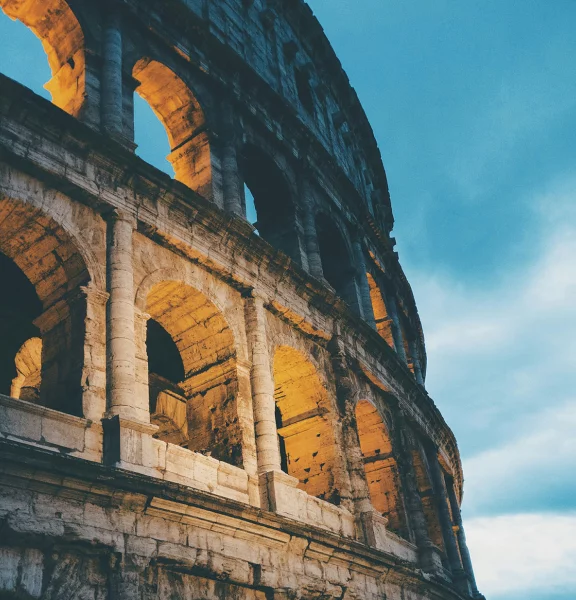Get your own personalized 360° MBA Ranking now.
Get a free consultation

International MBA students
Student satisfaction rate
Schools accredited by AACSB, AMBA or EQUIS
Average annual salary
Your guide to studying in Italy
With a welcoming environment and unique historical setting, Italy never fails to impress incoming international students. This centuries-old country features some of the most prestigious and long-established universities in Europe. From art and design to engineering and business, there is plenty to choose from among MBA specializations. The Italian “dolce vita”, or “sweet life”, is a dream for thousands of internationals who want to study in Italy. The excellent cuisine and incredible sights are a magnet for visitors. In addition, tuition fees are often more affordable than other destinations, without compromising the high quality of teaching.
Cultural Specifics of Italy
Tradition, family, respect, and social connections – these are some of the main pillars of Italian culture. Etiquette plays an important role in social life, where being polite and offering a greeting go a long way. Italians are often very expressive in their communication, using hand gestures to convey meaning. They appreciate direct eye contact, which demonstrates openness and genuine interest in the conversation. Maintaining a healthy work-life balance is crucial in this culture, as reflected in the long, leisurely meals favored by people in Italy.
Given that art and history are such indelible parts of the country’s character, the strong respect for tradition should come as no surprise. There are hundreds of cultural customs and festivals celebrated throughout the year.
Business Culture in Italy
In Italy’s business culture, it is essential to be able to build good relationships and to respect hierarchy in organizations – factors like experience and age carry great importance. Italians like to establish trust and openness when maintaining their connections, both personally and professionally. Communication is rather indirect, which means people prefer diplomacy and tact over bluntness. Depending on the business context, the dress code can be conservative, but elegant.
Punctuality is important, but scheduling and making decisions may take time until everyone is consulted and consensus is reached. Meetings are often informal and unstructured and participants freely express their opinions or disagreements.
The experiences of students and alumni in Italy
Discover business schools that embrace collaboration in every form.
The MBA Cultural Fit Index compares schools along different cultural dimensions.
Advantages of the MBA programs in Italy
The latest Financial Times MBA and EMBA rankings list 3 Italian schools among the top in the world, recognizing their strategic locations and the significant advantages in networking and career opportunities they provide. Of the only 129 schools globally that hold the coveted Triple Crown accreditation, 3 universities in Italy are accredited by AACSB, EQUIS, and AMBA – a marker of high educational standards and international credibility.
Students in need of financial aid for their MBA in Italy can apply for several opportunities provided both by the government and independent organizations. Programs like Invest Your Talent in Italy offer scholarships that cover some of the educational costs associated with international MBA studies. In addition, many universities in Italy provide merit-based scholarships and tuition waivers that contribute to the accessibility of business education in the country.
When it comes to professional opportunities, Italy is known worldwide for its excellence in industries such as luxury goods, fashion, automotive, and finance. As a global leader in these sectors, Italy presents international MBA graduates from local institutions with a significant competitive advantage, important industry connections, and top companies for career development.
COMMON EXPENSES AND LEGAL ASPECTS
Cost of living
Rent of one-bedroom apartment in city center (monthly): EUR 749.32
Basic utilities (monthly): EUR 199.23
Public transport pass (monthly): EUR 35.00
Gym subscription (monthly): EUR 48.43
Water (1.5-liter bottle): EUR 0.43
Source: Numbeo
Visa requirements and work permits
International students from non-EU/EEA countries going to Italy will need a student visa (Type D) and a residence permit for the duration of their MBA. To obtain a student visa for Italy, they need to contact the Italian consulate in their home country and provide proof of enrollment, financial means, health insurance, and accommodation. The application for residence permit (Permesso di Soggiorno) has to be submitted within eight days of arriving in the country. Students who wish to work while studying in Italy can do so in the form of part-time work up to 20 hours per week. EU/EEA students do not require a visa or work permit but must register with the local authorities.
FEATURED SCHOOLS IN Italy



Explore the most popular MBA programs in Italy
You might also be interested in...
Request a consultation
Get a free consultation with our expert advisors and discover the MBA that best suits your profile and aspirations.
